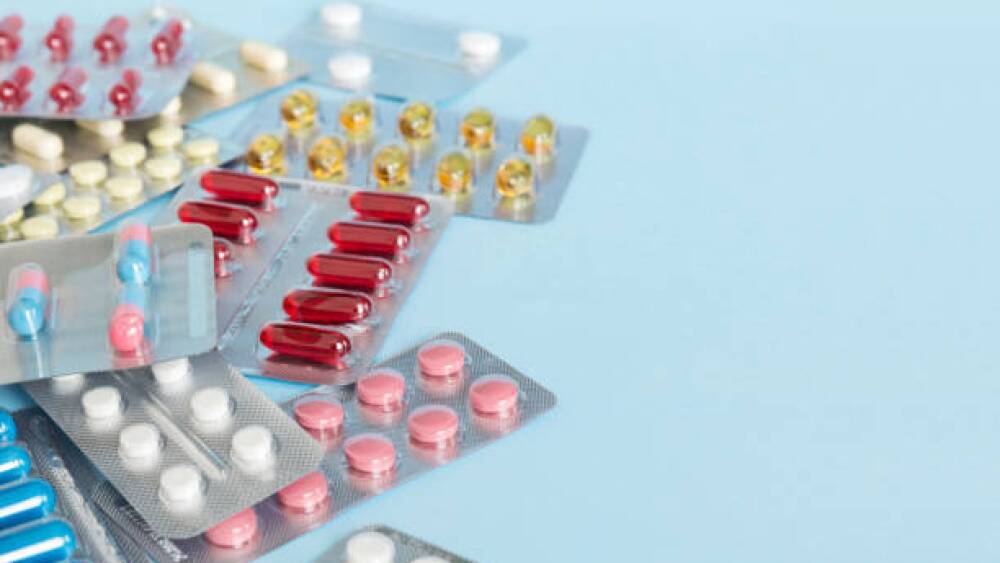EXTON, Pa., Nov. 12 /PRNewswire-FirstCall/ -- ViroPharma Incorporated today announced the presentation of data from its ongoing, open-label study, showing that in this study Cinryze(TM) C1 inhibitor therapy successfully treated all types of acute hereditary angioedema (HAE) attacks seen in the study through the date of analysis. Patients suffering acute attacks of HAE who were treated with Cinryze experienced improvement in symptoms at a median time of 30 minutes post treatment. None of the subjects in this study treated for laryngeal attacks required hospitalization or intubation. The findings were presented today at the American College of Allergy, Asthma and Immunology (ACAAI) 2008 Annual Meeting in Seattle, WA.
"The open label extension study findings indicated Cinryze was well tolerated in this study, and successfully treated all of the types of acute HAE attacks seen during the trial," said Bruce Zuraw, MD, professor of medicine, University of San Diego, who presented the data. "These results recognize the potential for Cinryze to treat acute attacks of HAE."
Dr. Zuraw discussed these data in a presentation entitled "Results of open-label administration of nanofiltered C1-inhibitor for the treatment of acute HAE attacks." Eighty-eight (88) subjects with documented HAE were screened and enrolled in an acute treatment open-label protocol. Subjects were eligible to receive open-label injections of Cinryze for acute attacks of angioedema occurring at any anatomical site. Subjects could receive a second open-label injection of Cinryze 60 minutes later if they had not improved. Twenty-four (24) subjects have been followed for greater than one year.
Four hundred and forty seven (447) acute attacks were treated in 82 subjects who had at least one attack. The primary locations of treated attacks were extremities (68); facial (48); gastrointestinal (272); genitourinary (9); and laryngeal (50). According to additional study findings, the median time to improvement was 30 minutes in the 447 attacks that occurred, and 93.4 percent of patients reported improvement in symptoms within 4 hours, regardless of how many times they had previously received Cinryze. None of the subjects in this study treated for laryngeal attacks required hospitalization or intubation, and no serious adverse reactions were considered related to Cinryze administration.
New Data Support Need to Improve Screening for HAE
Despite the potential severity of HAE-related attacks, many patients experience significant delays in receiving an accurate diagnosis of HAE, according to recent survey findings that were also presented at the ACAAI Annual Meeting.
HAE patients from the US, UK, France, Germany, and the Netherlands were invited by their local HAE organization to participate in an online, anonymous online survey. The surveys sought to determine patients' family history of HAE, observe the flow of patients through the healthcare system, and identify differences in medical care. Three hundred and thirteen (313) participants, with an average age of 37 years, completed the questionnaire.
Results from this survey were presented in an abstract entitled "Shortcomings in the diagnosis of hereditary angioedema: Are we adequately screening family members of affected patients?" These results indicated that 65 percent of patients were initially misdiagnosed, which resulted in an unnecessary surgical procedure in more than 20 percent of patients. The average time to diagnosis was 8.3 years after initial presentation of symptoms, and patients also reported visiting an average of 4.4 different physicians before receiving an accurate diagnosis of HAE. In addition, survey participants had an average of two immediate and two extended family members that had been diagnosed with HAE, but only 48 percent of their immediate family members and 26 percent of their extended family members had been tested for HAE.
"Accurate, timely diagnosis of HAE patients continues to be a challenge, and despite the fact that HAE is a hereditary disorder, testing family members is not common practice; a consensus statement may lead to improved and earlier diagnosis of patients with HAE," said Timothy Craig, DO, professor of medicine, Penn State University, who co-presented the survey data. "These findings indicate that testing family members for HAE should be a primary concern for those caring for patients with the disorder, and patients should be alerted to the need for screening of their family members."
About Cinryze C1 Inhibitor (human)
Cinryze is a highly purified, pasteurized and nanofiltered plasma-derived C1 inhibitor product that has been approved by FDA for routine prophylaxis against angioedema attacks in adolescent and adult patients with HAE. C1 inhibitor therapy has been used acutely for more than 30 years in Europe to treat patients with C1 inhibitor deficiency. Cinryze has not been approved for acute treatment in the United States or any other jurisdiction.
Cinryze has been well tolerated. The most common adverse reactions observed have been upper respiratory infection, sinusitis, rash and headache. No drug-related serious adverse events (SAEs) have been observed in clinical trials. Severe hypersensitivity reactions may occur. Thrombotic events have occurred in patients receiving high dose off-label C1 inhibitor therapy well above the approved treatment dosage regimen. With any blood or plasma derived product, there may be a risk of transmission of infectious agents, e.g. viruses and, theoretically, the CJD agent. The risk has been reduced by screening patients for prior exposure to certain virus infections and by manufacturing steps to reduce the risk of viral transmission including pasteurization and nanofiltration.
Cinryze is for intravenous use only. A dose of 1000 Units Cinryze can be administered every 3 or 4 days for routine prophylaxis against angioedema attacks in HAE patients. Cinryze is administered at an injection rate of 1 mL per minute.
About Hereditary Angioedema
HAE is a rare, severely debilitating, life-threatening genetic disorder caused by a deficiency of C1 inhibitor, a human plasma protein. This condition is the result of a defect in the gene controlling the synthesis of C1 inhibitor. C1 inhibitor maintains the natural regulation of the contact, complement, and fibrinolytic systems, that when left unrestricted, can initiate or perpetuate an attack by consuming the already low levels of endogenous C1 inhibitor in HAE patients. Patients with C1 inhibitor deficiency experience recurrent, unpredictable, debilitating, and potentially life threatening attacks of inflammation affecting the larynx, abdomen, face, extremities and urogenital tract. Patients with HAE experience approximately 20 to 100 days of incapacitation per year. There are estimated to be at least 4,600 people with HAE in the United States.
For more information on HAE, visit the U.S. HAE Association's website at: http://www.haea.org.
About ViroPharma Incorporated
ViroPharma Incorporated is a biopharmaceutical company dedicated to the development and commercialization of products that address serious diseases treated by physician specialists and in hospital settings. ViroPharma commercializes Vancocin(R) (vancomycin hydrochloride capsules, USP), approved for oral administration for treatment of antibiotic-associated pseudomembranous colitis caused by Clostridium difficile and enterocolitis caused by Staphylococcus aureus, including methicillin-resistant strains, and Cinryze(TM) (C1 inhibitor (human)) for routine prophylaxis against angioedema attacks in adolescent and adult patients with hereditary angioedema (HAE), also known as C1 inhibitor deficiency (for prescribing information on ViroPharma's commercial products, please download the package inserts at http://www.viropharma.com/Products.aspx). ViroPharma currently focuses its drug development activities in diseases including cytomegalovirus (CMV), HAE and C. difficile.
ViroPharma routinely posts information, including press releases, which may be important to investors in the investor relations and media sections of our company's web site, http://www.viropharma.com. The company encourages investors to consult these sections for more information on ViroPharma and our business.
Forward-Looking Statements
Certain statements in this press release contain forward-looking statements that involve a number of risks and uncertainties. Forward-looking statements provide the Company's current expectations or forecasts of future events. Forward-looking statements in this press release include statements regarding ViroPharma's clinical development programs. Our actual results could differ materially from those results expressed in, or implied by, these forward-looking statements. The development and commercialization of pharmaceutical products is subject to risks and uncertainties. The data that were presented at the ACAAI Annual Meeting regarding the in the ongoing open-label study of Cinryze for acute treatment of HAE is partial data from an ongoing open label study. There can be no assurance that the complete data from this study will demonstrate that Cinryze successfully treats all types of acute hereditary angioedema (HAE) attacks and may not be predictive of the results of any future testing. The FDA may view the data regarding the use of Cinryze for acute treatment of HAE we intend to submit as a supplemental BLA as insufficient or inconclusive, request additional data, delay any decision past the time frames anticipated by us, limit any approved indications, or deny the approval of Cinryze for acute treatment of HAE. These factors, and other factors, including, but not limited to those described in ViroPharma's annual report on Form 10-K and quarterly reports on Form 10-Q filed with the Securities and Exchange Commission during 2008, could cause future results to differ materially from the expectations expressed in this press release. The forward-looking statements contained in this press release may become outdated over time. ViroPharma does not assume any responsibility for updating any forward-looking statements.
CONTACT: Kristina Broadbelt, Assistant Director, PR & Advocacy,
+1-610-321-2358, or Robert A. Doody Jr., Manager, Investor Relations,
+1-610-321-6290, both of ViroPharma Incorporated
Web site: http://www.viropharma.com/
http://www.haea.org/




